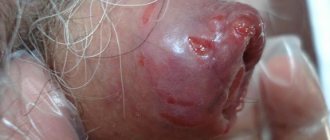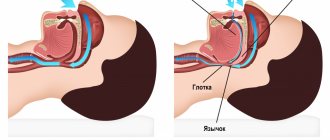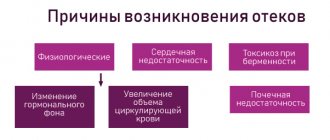Diagnostics
Don't put off visiting your doctor.
To find out why a child snores in his sleep if there is no snot, you need to contact an otolaryngologist. The doctor will examine your mouth and nose. Additional research may be needed:
- blood and urine tests;
- nasopharyngeal swab;
- radiography of the facial skull.
If a child snores, the doctor will see inflamed adenoids or nasal polyps, and the baby may have abnormalities of the soft and hard palate.
If necessary, polysomnography is prescribed: an overnight study will determine how dangerous sounds during sleep are.
Diagnosis of snoring
An ENT doctor diagnoses and treats snoring. The snorer himself does not hear in his sleep that he is snoring. Therefore, diagnosis begins not only with interviewing the patient, but also his relatives, who can tell about the characteristics of the patient’s snoring, its intensity, sleep patterns, sleep apnea, etc.
Next, a physical examination is carried out: the doctor calculates the patient’s body mass index and assesses the condition of the nasopharynx.
To identify or exclude causes of snoring related to the anatomical features of the structure of the nasopharynx (for example, a deviated nasal septum), an endoscopic examination of the ENT organs is performed.
The patient may be prescribed rhinomanometry, a study that allows one to evaluate nasal breathing function.
If a person has signs that provoke the development of sleep apnea (diabetes mellitus, high blood pressure, headaches after waking up, depression), cardiorespiratory monitoring is performed. It allows you to record pauses in breathing during sleep, pulse, identify hypoxia, disturbances in heart function, etc.
If difficulties arise with diagnosing the disease, and the doctor has doubts regarding the diagnosis, the patient is sent for a polysomnographic study - a method for studying sleep and human behavior during sleep in a hospital setting.
Folk remedies
Traditional recipes will help you get rid of snoring. Before giving your child any remedy prepared at home, you should consult a doctor so as not to provoke a complication of the pathology. The most effective folk methods for snoring:
- Eucalyptus oil. Promotes rapid removal of mucus. For treatment, a few drops of essential oil are added to hot water or an aroma lamp, after which the child is allowed to inhale the healing vapors before bedtime.
- Mint extract. The menthol content reduces inflammatory processes in the respiratory tract, promotes the removal of mucus from the lungs, and dilates capillaries. It is recommended to give your baby herbal tea with mint before bedtime, which will make you sleep soundly.
- Sea buckthorn oil. Effective for colds and runny nose. Sea buckthorn oil quickly removes inflammation in the nose. To do this, you need to instill 2-3 drops into each nostril of the child 3 hours before bedtime.
- White cabbage with honey. An ancient recipe that has been used for snoring for centuries. You need to finely chop the cabbage leaf, mix 1 tbsp. l. liquid honey and eat before bed.
- Calendula and oak bark. The infusion increases local immunity, removes inflammatory processes in the oropharynx . Mix 1 tsp. oak bark and calendula flowers, pour 200 ml of boiling water, close the lid tightly and leave for 30-40 minutes. The child needs to gargle with warm, strained infusion for a month before going to bed.
Nasal congestion: forms, symptoms, treatment
Let's consider the most common diseases in which children have a stuffy nose, as well as the main approaches to treatment.
Respiratory infections
In most cases, nasal breathing suffers due to viral infections. The feeling of dryness in the nose is quickly replaced by a profuse runny nose, the mucous membranes of the nasopharynx are swollen, the temperature is low-grade, and general malaise is noted. The use of treatment methods such as rinsing the nose and throat with saline solutions, inhalation, dry heat, and taking antiviral agents can overcome nasal congestion within 5-7 days.
Bacterial rhinitis, nasopharyngitis, sinusitis are characterized by increased viscosity of mucus, which is difficult to evacuate from the nasal passages. Temperature 38-40 °C, signs of intoxication are evident. If the anastomosis of the maxillary sinuses is blocked and the outflow of exudate is impaired, chronic nasal congestion develops, which may be accompanied by purulent discharge or occur without a runny nose.
If a child has a stuffy nose due to a bacterial infection, only a doctor can give recommendations on how to treat it. In most cases, only antibiotics can eliminate the source of the disease, and therefore improve nasal breathing. The following are used in parallel:
- vasoconstrictor sprays;
- antiseptic drugs;
- immunostimulants;
- saline solutions for rinsing the nose.
For sinusitis, a puncture (puncture) may be required to extract purulent contents from the sinus and carry out local medical procedures.
Adenoids
Quite often, problems with nasal breathing in children aged 3-8 years are associated with adenoids. This is the name of the hypertrophied nasopharyngeal tonsil, the lymphoid tissue of which grows, blocking the nasal passages.
If in the first stage of the disease, impaired nasal breathing manifests itself mainly in a horizontal position, then in the second stage of the process the child has a very stuffy nose and often has to breathe through the mouth. The third degree of the disease is characterized by complete and constant nasal congestion. Associated symptoms will be asthenic syndrome, hearing loss, and nasal sound.
In addition to etiotropic drugs, vasoconstrictor drops and rinsing the nasopharynx with saline solutions such as Aqualor help restore nasal breathing. Physiotherapeutic methods are widely used - laser, UHF, electrophoresis, magnetic therapy. In severe cases of the disease, surgical excision of adenoid vegetations is indicated.
Allergic rhinitis
Exposure of the allergen to the mucous membranes of the upper respiratory tract causes swelling of the mucous membrane and profuse rhinorrhea. In rare cases, nasal congestion without snot is recorded. The child sneezes, itching in the nasopharynx, dry cough, lacrimation and signs of conjunctivitis are observed.
How to treat nasal congestion in children with allergic reactions?
- Antihistamines for systemic and local action.
- Rinse the nasal passages with NaCl solution.
- In severe cases, glucocorticosteroid sprays are used.
To avoid serious complications, it is necessary to stop the attack when the first symptoms appear.
Vasomotor rhinitis
The pathology is caused by a violation of the regulation of vascular tone of the submucosa due to a disorder of the autonomic nervous system, hormonal imbalance, and dry air. Characterized by alternating nasal congestion on different sides, a small volume of discharge, impaired sense of smell, and headaches.
It is necessary to treat the underlying disease, as well as eliminate the provoking factor. As a remedy for nasal congestion for children, preparations based on a hypertonic solution of sea water - Aqualor Forte - are used. Physiotherapy procedures are often prescribed - UHF, UV, electrophoresis. In the absence of a therapeutic effect, they resort to surgical destruction of excessively dilated vessels.
Prevention of the condition and its complications
- Before going to bed, it is important to make sure the air is properly humidified. If it is dry, then the desired humidity should be achieved.
- Also, before going to bed, it is necessary to toilet the nose, remove crusts and rinse the nasal passages with saline solution.
- It is important to place children, especially those under one year old, in a lateral position. This position also reduces the likelihood of snoring during sleep.
- Parents are advised to monitor their child's weight. Organize proper, balanced nutrition.
- If possible, monitor the child’s physical activity and prevent a sedentary lifestyle.
The most dangerous cause of snoring is sleep apnea (sleep apnea).
Sleep apnea is a condition in which tissues in the throat partially or completely block the flow of air. A sleeping person begins to snore loudly, and then his breathing suddenly stops. Soon he wakes up with a loud snort, and then it all happens again. With sleep apnea syndrome, such episodes are repeated 5 times or more within an hour.
Sleep apnea leads to chronic lack of sleep, decreased concentration, and frequent mood swings. It can cause diabetes, heart disease, and high blood pressure.
We will call you back
Leave your phone number
Snores? So what!
Snoring is not typical for a child, however, only half of children are free from this deficiency. The rest suffer from the disease from time to time, and 10% - constantly. Some parents take this fact calmly and believe that there is no need to worry too much and nothing needs to be done. Others even proudly said: “He’s just like his grandfather!” Still others, every time a child sobs in his sleep at night, are ready to sound the alarm and get ready to go to the doctor. It should be noted right away: snoring in a child is an abnormal phenomenon and requires attention.
Snoring in a child: main causes
If a child snores, bedtime may not be a proper rest for him. And parents should always remember this. It is very important to identify the causes of snoring. For example, there may be polyps or growths in a child's nose that need to be removed.
- A common cause of snoring in a child during sleep is nasal congestion. It can be caused by a severe runny nose or sinusitis, or it can appear from inflammation of the frontal sinuses.
- Snoring in a child during sleep can be caused by birth defects. These are the limited width of the nasal passages and the curvature of the nasal septum. Such deformities that cause a child to snore during sleep could appear in the prenatal period or at birth.
- When a child has a sore throat, he snores. Sleep time is reduced to a minimum, since in addition to a sore throat, he may wake up from a hard and whistling sound.
- The causes of snoring in a child are often a sagging palate or an enlarged uvula.
- Snoring in a child during sleep occurs when there is a malocclusion of the teeth.
- Special cases when a child snores during sleep includes epilepsy.
- Obesity can be the cause of severe snoring in a child.
- Why does my child snore? It can appear from allergies!
In all these cases, treatment for snoring in a child is necessary. The main task is to establish the causes and competently eliminate them, which will have a positive effect on the treatment of apnea in children.
If night trills appear due to uncomfortable bedding, then treatment for snoring in a child may involve selecting an orthopedic pillow that is suitable for him.
A child snores in his sleep: advice from Komarovsky. Why does a child snore in his sleep?
Snoring at night can accompany not only adults and the elderly, but also small children. Every mother should be wary when she hears that her child is snoring in his sleep. Before visiting a doctor, you should monitor your child: his well-being during the day and his breathing during sleep. If the situation repeats itself systematically, then only a specialist to whom you describe your observations will be able to identify the reasons. The sooner the causes of snoring are eliminated, the faster your child will get rid of restless sleep.
Night snoring in a child
Statistics show that only 5% of children snore during sleep. This is caused by enlarged lymph tissues located in the area where the air flow exits the nasal passages, preventing air from entering. In this case, the child, due to the lack of free nasal breathing, is forced to open his mouth. But even in this case, vibrating, the soft tissues of the pharynx cause a snoring sound. When a child snores in his sleep, he may hold his breath, and this is dangerous for his health. Lack of oxygen in the brain causes hypoxia, and the child’s physical and mental development is inhibited. There may be several causes of snoring due to enlarged lymphatic tissue; let’s look at them in more detail.
Causes of snoring in a child's sleep
Pediatric doctor of the highest category and candidate of medical sciences Evgeniy Olegovich Komarovsky gives several reasons why a child snores in his sleep.
He considers the main one to be adenoiditis, or more precisely, an increase in adenoid tissue located in the nasopharynx. Snoring can be called a consequence of this disease, but the reason for the occurrence of adenoid growth lies in the frequent attack of viral infections on the child’s body. Without having time to recover from the previous illness, the body becomes ill with a new viral infection. This condition leads to chronic diseases in the nasopharynx.
For those parents whose child snores in their sleep, Komarovsky advises first of all to create comfortable conditions in the room where the child sleeps. Because the doctor considers one of the causes of snoring to be an abundant accumulation of dry mucus in the nasopharynx, which, in turn, causes dry and excessively warm air in the children's room. For a restful and sound sleep, a child needs cool air (no more than 18 degrees Celsius) with a humidity of at least 50%. Also, Dr. Komarovsky does not exclude allergic reactions that cause swelling of the nasopharynx. Therefore, the room should be free of dust and mold.
It happens that a child snores in his sleep because he is overweight due to overfeeding.
Snoring can also be caused by anatomical features of your child’s body: for example, a congenital deviated septum, a small lower jaw, a soft receding palate or narrow nasal passages. These causes are removed through surgery.
What symptoms accompany children's snoring?
Child snoring is not difficult to recognize; the main thing is to listen at night to how your baby breathes. When a child snores during sleep, he or she exhibits symptoms such as an open mouth, tilted head, snoring, sleep deprivation, paleness, irregular breathing, and restless sleep.
Sleep has deep and rapid phases, which should alternately replace each other. Because of snoring, this does not happen, the child does not get enough sleep, and this has a very bad effect on health.
Negative consequences of night snoring in children
If your child snores in his sleep, Komarovsky names several signs of the presence of adenoids, such as shortness of breath during sleep, respiratory arrest, inflammatory processes in the ears and sinusitis, and altered facial shape. A snoring child should be monitored not only at night, but also during the day.
Children who snore in their sleep behave aggressively and irritably during the day. They are sleepy, inattentive in their studies, apathetic and depressed. This condition, which lasts for months, negatively affects the development of the child, as the proper production of hormones is disrupted.
Fatigue and decreased activity due to poor sleep causes the glands that help process food to slow down, causing excess weight to accumulate in the body.
Snoring that accompanies colds should go away after treatment. If a child snores heavily during sleep for no apparent reason, then such snoring eventually affects vital organs. In this case, parents need to consult a doctor as soon as possible.
How to make it easier for your child to breathe while sleeping
A child snores in his sleep, what should parents do, how to help the child?
If a child's snoring is caused by colds accompanied by nasal congestion, there are several ways to make breathing easier during sleep.
- It is necessary to rinse the child's nose with a saline solution, which you can buy at the pharmacy or make yourself. To do this, take table salt and dilute one teaspoon in a glass of warm water. Then drop a few drops of the solution into each nostril.
- After rinsing, use drops that constrict blood vessels and anti-inflammatory medications.
- You can change the pillow to a more comfortable or orthopedic product. Do not give your child a high pillow intended for adults.
- Try moving the baby from his back to his side.
- Be sure to ventilate the room and place an air freshener in the room.
Preventing children's snoring
In order to avoid snoring in the future, it is necessary to follow preventive measures. The most important thing is to strengthen the immune system. To do this, you need to give your child vitamins. A very good preventive procedure is hardening. Walk with your child outside every day and in any weather. Teach your child to wash their hands both before eating and after walking. It is important to dress your child correctly so that he does not overheat, but also does not freeze. In the cold season, boots should be warm and not wet, and a hat must be worn on the head. It is also useful to pour your feet before going to bed alternately with cool and warm water, lowering the water temperature by one degree every day. Exercise and proper nutrition are important to strengthen the immune system. By following simple methods, you will avoid frequent colds, and, accordingly, your child’s night snoring.










